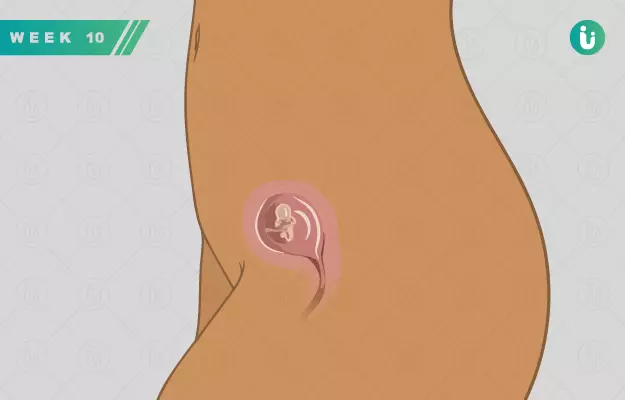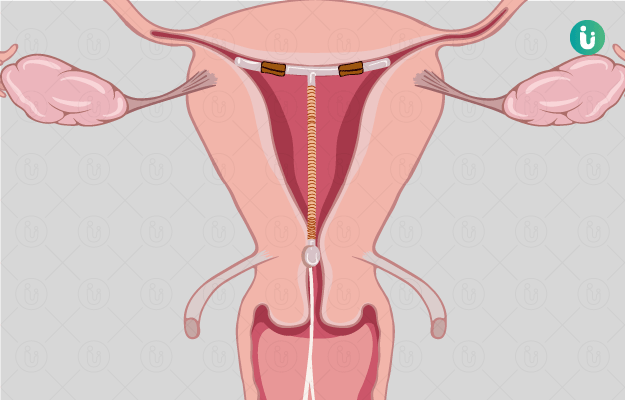Welcome to the 10th week of pregnancy. Your baby bump will become more pronounced this week as your uterus grows to the size of an orange and you put on a tiny bit of weight. The volume of blood in your body is increasing, so that will add a little extra pressure on your heart and blood vessels. It's important that you take care of yourself, and get up more slowly if you are experiencing any dizziness.
At the end of this week, your baby will officially make the transition from an embryo to a foetus. His or her webbed hands and feet will separate to form individual fingers and toes. His or her eyes are still half open and can react to light stimulus now. The ears and upper lip are forming. The head is still too big for the body, but that will only change in due course. The major organs will continue to develop this week. If you have a doctor's checkup scheduled this week, ask if the doctor can help you hear your baby's heartbeat.
In terms of pregnancy symptoms, there may be some good news and some bad. The good news is that some issues like morning sickness will start to fade—even disappear altogether for some women—this week. The bad news is that some other symptoms like melasma or dark spots on the face might appear for some of you—these spots usually resolve on their own after the delivery. You may feel more tired and sluggish this week, but power through as you are nearing the second trimester when you are likely to feel a lot better. Your pregnancy hormones will continue to give you stomach problems this week—you may have increased flatulence, constipation and heartburn.
As soon as your morning sickness subsides, you need to get more strict about your pregnancy diet—remember that pregnant women need more iron, iodine and folate than other women their age. (Read more: Essential vitamins and minerals during pregnancy) If you haven't done it already, you should also take up exercises during pregnancy this week—this will help you avoid or at least reduce niggles like leg cramps during pregnancy later on.
At the end of this week, you will also have completed one-quarter of the full term of 40 weeks. That's no mean feat. So pat yourself on the back, and read on to know all about the 10th week of pregnancy.

































